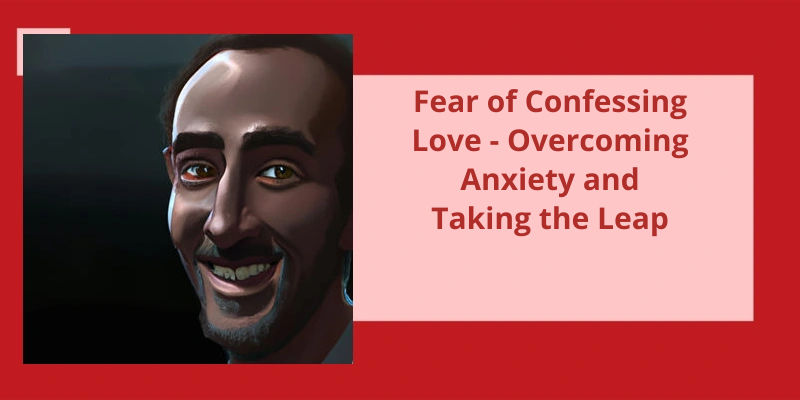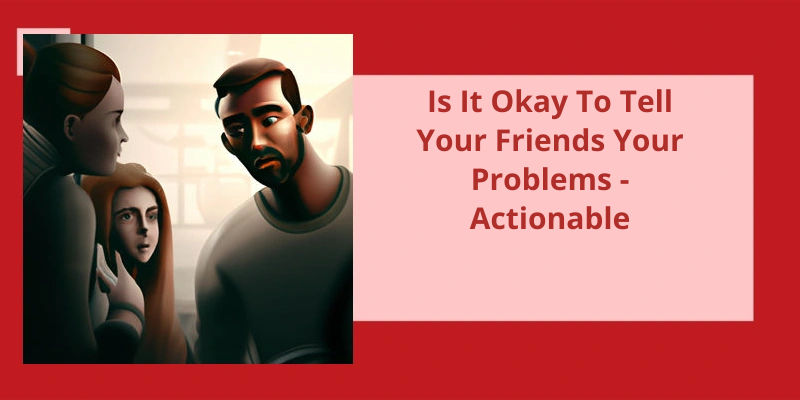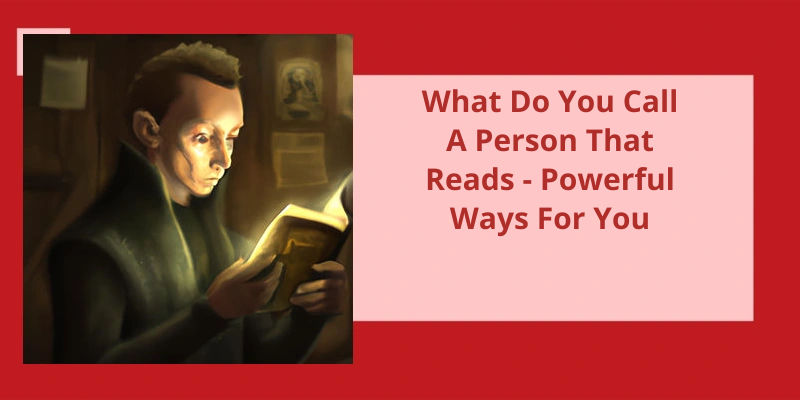In the journey of love, it’s both a blessing and a curse to find oneself deeply invested in a relationship with someone who doesn’t reciprocate that same level of affection. While society often romanticizes the idea of fighting for love or winning over the heart of another, the reality of marrying someone who doesn't love you unveils a different and often heart-wrenching tale. Little known to many, this intricate conundrum is fraught with emotional complexities, personal sacrifices, and hidden traumas that can erode at the very foundation of one's sense of self-worth and happiness. Navigating such treacherous waters requires immense strength, resilience, and a deep understanding of the dynamics at play. In this exploration of marrying someone who doesn't love you, we will delve into the lesser-known ways individuals find themselves in these circumstances, the toll it takes on their emotional well-being, and the potential avenues for healing and growth amidst the challenges they face.
Can You Be Married and Not in Love?
Being in a loveless marriage can be an incredibly difficult and painful experience. It’s a situation where one or both partners no longer feel the deep connection and affection that love brings. Instead, they find themselves living like distant roommates or even like siblings, lacking the passion and intimacy that once defined their relationship.
Resentment is also a common feeling in a loveless marriage. When one or both partners don’t feel loved or desired, it’s easy for negative emotions to build up over time. Unresolved conflicts, unmet needs, and unfulfilled desires can create a sense of bitterness and anger within the relationship, further widening the emotional gap between the partners.
While being in a loveless marriage is undoubtedly challenging, it doesn’t necessarily mean it’s the end of the road. With open communication, counseling, and a shared commitment to work on the relationship, it’s possible to rebuild love and intimacy. But in some cases, if efforts to reignite the spark fail, it may be necessary to consider other options for a happier and more fulfilling future.
For some individuals, the decision to marry someone they don’t love may stem from various personal reasons. Loneliness can be a powerful motivator, driving people to seek companionship regardless of romantic feelings. Additionally, the desire to share a lifetime with a reliable and sincere partner may outweigh the need for passionate love. As long as the other person genuinely loves and cares for them, some individuals are content with entering into a marriage devoid of romantic attachment.
Why Would Someone Marry Someone They Don’t Love?
Marrying someone who doesn’t love you is a complex decision that can be influenced by various factors. One possible reason is the fear of being lonely. Some individuals prioritize companionship and the idea of having someone by their side, even if that person doesn’t reciprocate the same level of love. The fear of ending up alone might drive them to settle for a relationship where love is absent.
Another reason could be the desire to spend their life with someone they consider reliable and sincere. For these individuals, love might not be the ultimate priority in a marriage. They might prioritize stability, trust, and a sense of security over passionate love. In their perspective, a partner who genuinely cares for them and exhibits loyalty is enough to sustain a long-term commitment.
Sometimes, societal pressure or expectations play a role in this decision. Individuals may succumb to cultural norms or family pressures, leading them to marry someone who doesn’t love them. Traditional values or the belief in the sanctity of marriage may push them towards choosing a partner who’s deemed suitable by societal standards, regardless of their own emotions.
Additionally, personal insecurities or low self-esteem might drive someone to settle for a loveless marriage. They may believe that they don’t deserve love or that they’re incapable of receiving genuine affection.
Furthermore, some individuals might believe that love can grow over time. They may enter into a marriage with the hope that their partners love will eventually develop or deepen. In such cases, sacrificing their own love for the potential of a loving future might seem like a reasonable trade-off.
If you find yourself in a loveless marriage and are seeking help or advice on how to navigate this difficult situation, there are various steps you can take. Instead of focusing solely on the lack of love in your relationship, consider changing your approach and finding ways to build a fulfilling life for yourself. This may involve altering your environment, expressing gratitude for the positive aspects of your life, nurturing your friendships, pursuing hobbies, and investing in your personal growth. Additionally, couples therapy can provide a safe space to address the issues in your marriage and explore potential solutions.
What to Do if You Are in a Loveless Marriage?
If you find yourself in a loveless marriage, it can be extremely challenging and disheartening. It’s important to remember that you deserve to be in a relationship filled with love and happiness. However, if you’re looking for help or advice on how to navigate a loveless marriage, there are steps you can take.
Firstly, it’s essential to change your approach to the situation. Instead of dwelling on the lack of love in your marriage, focus on improving yourself and your own happiness. Take the time to discover what makes you happy and pursue those things passionately.
Building a life for yourself outside of your marriage is another way to find fulfillment. Seek out new hobbies and explore your passions. By doing so, you can create a sense of purpose and joy that’s independent of your relationship.
Changing your environment can also have a profound impact on your well-being. Consider pursuing new career opportunities or relocating to a place that aligns with your aspirations and values. Surrounding yourself with positive influences and a supportive community can make a world of difference.
In a loveless marriage, it’s crucial to show gratitude for the things that bring you joy, even if they’re unrelated to your relationship. Focus on cultivating strong friendships and investing time in those meaningful connections. These relationships can provide the love and support that may be lacking at home.
Furthermore, couples therapy can be a valuable tool in trying to rekindle the love in your marriage. A trained therapist can help you and your partner navigate through the challenges and work towards reigniting the spark.
Remember to also prioritize yourself and invest in personal growth. Explore therapy or self-improvement courses to gain a deeper understanding of your own needs and desires. By investing in your own well-being and happiness, you can create a more fulfilling life, whether within or outside of your marriage.
It’s important to remember that you deserve happiness and love, and with time and effort, you can find a path towards a more fulfilling life.
It’s undoubtedly a difficult situation when your love goes unreciprocated or when someone you once loved causes you harm. While completely stopping those feelings may prove challenging, it’s possible to navigate through them in a way that doesn’t prolong your pain. By taking positive and healthy approaches, you can learn to manage and eventually overcome the lingering affection or hurt associated with unrequited love or past wounds.
Can You Ever Stop Loving Someone Who Doesn’t Love You?
Can you ever stop loving someone who doesn’t love you? This is a complex question that doesn’t have a simple answer. Love is a powerful emotion that can linger even in the face of unrequited feelings. It isn’t a switch that can be turned off at will. However, while you may always carry those feelings with you in some form, it’s possible to manage them in a way that doesn’t cause you further pain.
First and foremost, it’s important to acknowledge and accept your emotions. Bottling them up or denying your feelings will only prolong the healing process. Allow yourself to grieve the loss of the relationship and come to terms with the fact that the person you love doesn’t reciprocate those feelings. This is a crucial step in moving forward.
Next, focus on self-care and self-improvement. Engage in activities and hobbies that bring you joy and fulfillment. Surround yourself with supportive friends and family who can offer comfort and perspective. Take time to explore your own interests and goals, and invest in your personal growth. By redirecting your energy towards yourself, you can begin to rebuild your self-esteem and create a strong foundation for healing.
It’s also important to set boundaries with the person who doesn’t love you. Continuing to interact with them may only serve to perpetuate your feelings and cause further heartache. While it may be difficult, cutting off contact or limiting interactions can help you create space for healing and moving on.
Seeking professional help, such as therapy or counseling, can be incredibly beneficial when navigating unrequited love. A therapist can provide guidance and support as well as help you develop healthy coping mechanisms. They can also help you explore any underlying issues that may be contributing to your attachment to someone who doesn’t love you.
Remember that healing takes time. Be patient and kind to yourself throughout the process. Allow yourself to grieve, but also embrace the opportunity for personal growth and self-discovery. While you may always carry a special place in your heart for the person who doesn’t love you, it’s possible to manage your feelings in positive, healthy ways and move towards a happier, more fulfilling future.
Tips for Letting Go and Moving on From Unrequited Love
Letting go and moving on from unrequited love can be a challenging and painful process. Here are a few tips to help you navigate this difficult situation:
1. Accept your feelings: Acknowledge that it’s normal to feel hurt, disappointed, or rejected when someone you love doesn’t feel the same way about you.
2. Give yourself time: Healing takes time. Allow yourself to grieve, but also make a conscious effort to gradually let go of the hope and attachment you may have to that person.
3. Focus on self-care: Take care of your emotional, mental, and physical well-being. Engage in activities that bring you joy and help you feel better about yourself.
4. Seek support: Talking to a trusted friend or family member can provide comfort and perspective. Consider joining a support group or seeking professional help if needed.
5. Redirect your energy: Find new hobbies, interests, or goals to redirect your energy toward. Engaging in activities that inspire you can help shift your focus away from the unrequited love.
Remember, healing from unrequited love takes time, patience, and self-compassion. Be kind to yourself as you go through this process of letting go and moving on.
It can be incredibly painful and challenging to navigate a marriage when your spouse no longer loves you. However, it’s important to prioritize your own well-being and emotional health during this difficult time. While it may seem counterintuitive, giving yourself some space and focusing on personal growth can be beneficial. Additionally, finding a trusted friend or therapist to confide in can provide much-needed support. Instead of solely fixating on the issues within your relationship, consider exploring new interests and activities that bring you joy.
What to Do When You Are Married to Someone Who Doesn T Love You?
Finding out that your spouse doesn’t love you anymore can be a heart-wrenching experience. It can leave you feeling lost, confused, and unsure of how to move forward. However, it’s important to remember that you aren’t alone and that there are ways to manage your feelings and navigate this difficult situation.
Another important step is to embrace some space. It can be tempting to cling to your spouse in hopes of winning back their love, but sometimes creating distance can actually help both of you gain clarity and perspective. Give yourself and your spouse some breathing room to evaluate your feelings and decide what you truly want.
It can also be beneficial to express your feelings to someone you trust. Bottling up your emotions can be detrimental to your mental and emotional health, so find a friend, family member, or therapist whom you can confide in. Opening up and sharing your struggles can provide a sense of relief and allow you to process your emotions more effectively.
When dealing with a situation like this, it’s important to look at the bigger picture and not get too caught up in the day-to-day struggles. Take a step back and consider the long-term happiness and fulfillment for both you and your spouse. This can help shift your perspective and guide your decision-making process.
Lastly, finding something that excites you is crucial when rebuilding your life. Discover new passions or revisit old ones that bring you joy and fulfillment. Engaging in activities that make you happy can help you regain a sense of self-worth and confidence, even in the midst of a difficult situation.
Remember, it takes time and effort to navigate the complexities of a marriage where one partner no longer loves the other. It’s important to prioritize self-care, seek support from others, and focus on your own personal growth. By doing so, you can find ways to manage your feelings and move forward on a path towards healing and happiness, whether that be within or outside the marriage.
Source: My Husband Doesn’t Love Me – 5 Things You Can Do About It
Loving someone who doesn’t love you back can be a challenging and painful experience. However, it’s important to remember that you deserve love and happiness in a mutually fulfilling relationship. In order to navigate this difficult situation, there are several steps you can take.
How to Love Someone Who Doesn’t Love You?
When you find yourself in a situation where you’re deeply in love with someone who doesn’t reciprocate those feelings, it can be an overwhelming and painful experience. However, there are ways to navigate this heartbreak and find peace within yourself.
Firstly, it’s crucial to analyze the reasons behind your feelings for the other person. What’s it about them that you admire or find attractive? By understanding this, you can start to work on those aspects within yourself and focus on personal growth. This self-reflection can also help you gain clarity on whether pursuing a one-sided love is truly what you want.
In order to heal, it’s important to be realistic about the situation. Accept that the person you love may never feel the same way, and that forcing or pressuring them into loving you’ll only lead to unhappiness for both parties involved. Instead, focus on building a support system around you and engaging in activities that bring you joy and fulfillment.
It can be tempting to try harder and show the other person just how much you love them, but this often leads to disappointment. Instead, try a smarter approach. Redirect your efforts towards self-improvement and self-love. By becoming the best version of yourself, you not only increase your own happiness, but also attract others who may reciprocate your feelings.
Remember that no one is irreplaceable, including the person you’re in love with. It may feel like they’re the only one, but the truth is that there are billions of people in the world, and many of them have the potential to love and be loved by you. Open yourself up to the possibility of finding someone who’ll appreciate and cherish you for who you are.
As difficult as it may be, it’s important to try to move on from this unrequited love. Holding onto someone who doesn’t love you back will only prolong your pain and prevent you from finding true happiness. Embrace the idea of new beginnings and allow yourself to explore other opportunities for love and companionship.
Lastly, and perhaps the most important, is to love yourself unconditionally. Treat yourself with kindness, respect, and compassion. Engage in self-care activities that nourish your mind, body, and soul. Remember that you deserve to be loved wholeheartedly, and that starts with loving yourself first. By prioritizing your own well-being and happiness, you set the foundation for a fulfilling and meaningful life, with or without the love of someone else.
How to Cope With Rejection and Overcome Heartbreak
- Allow yourself to feel the emotions
- Find a support system to lean on
- Engage in self-care activities
- Focus on self-improvement
- Practice gratitude and positive thinking
- Redirect your energy towards new goals
- Accept and learn from the experience
- Give yourself time to heal
- Seek professional help if needed
Conclusion
In the realm of relationships and love, one of the most painful and delicate situations is marrying someone who doesn't reciprocate your feelings. Despite societal expectations or personal desires, marrying an individual who lacks love for you can be a harrowing experience filled with emotional turmoil. However, by recognizing a few little-known ways to navigate this difficult path, individuals can gain insight and make informed decisions. Firstly, introspection becomes paramount as one must contemplate their own self-worth and happiness. Evaluating whether love is truly absent or simply dormant can help in understanding the dynamics of the relationship. Communicating openly and honestly with the partner can also be a powerful tool, allowing for the possibility of discovering underlying reasons for their emotional unavailability. Seeking professional guidance and therapy might offer invaluable perspectives and healing for both individuals involved. Furthermore, fostering personal growth, setting boundaries, and pursuing self-love and self-care can serve as powerful catalysts for personal healing and potentially transforming the relationship dynamics. Ultimately, choosing to marry someone who doesn't love you requires careful consideration, as the journey ahead will inevitably be filled with challenges. However, armed with knowledge, self-awareness, and a willingness to navigate uncharted territory, individuals can make empowered decisions regarding their own happiness and future.






